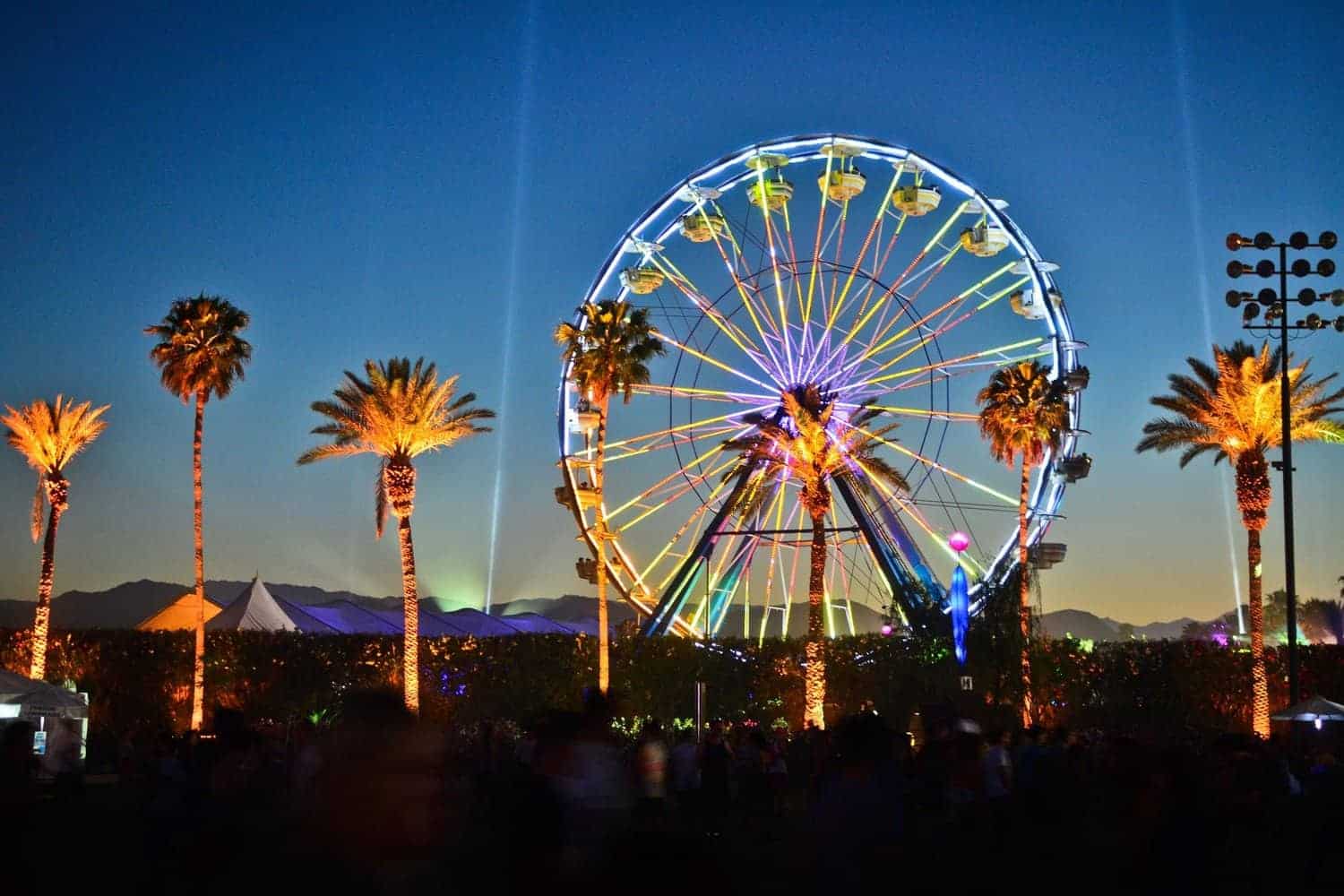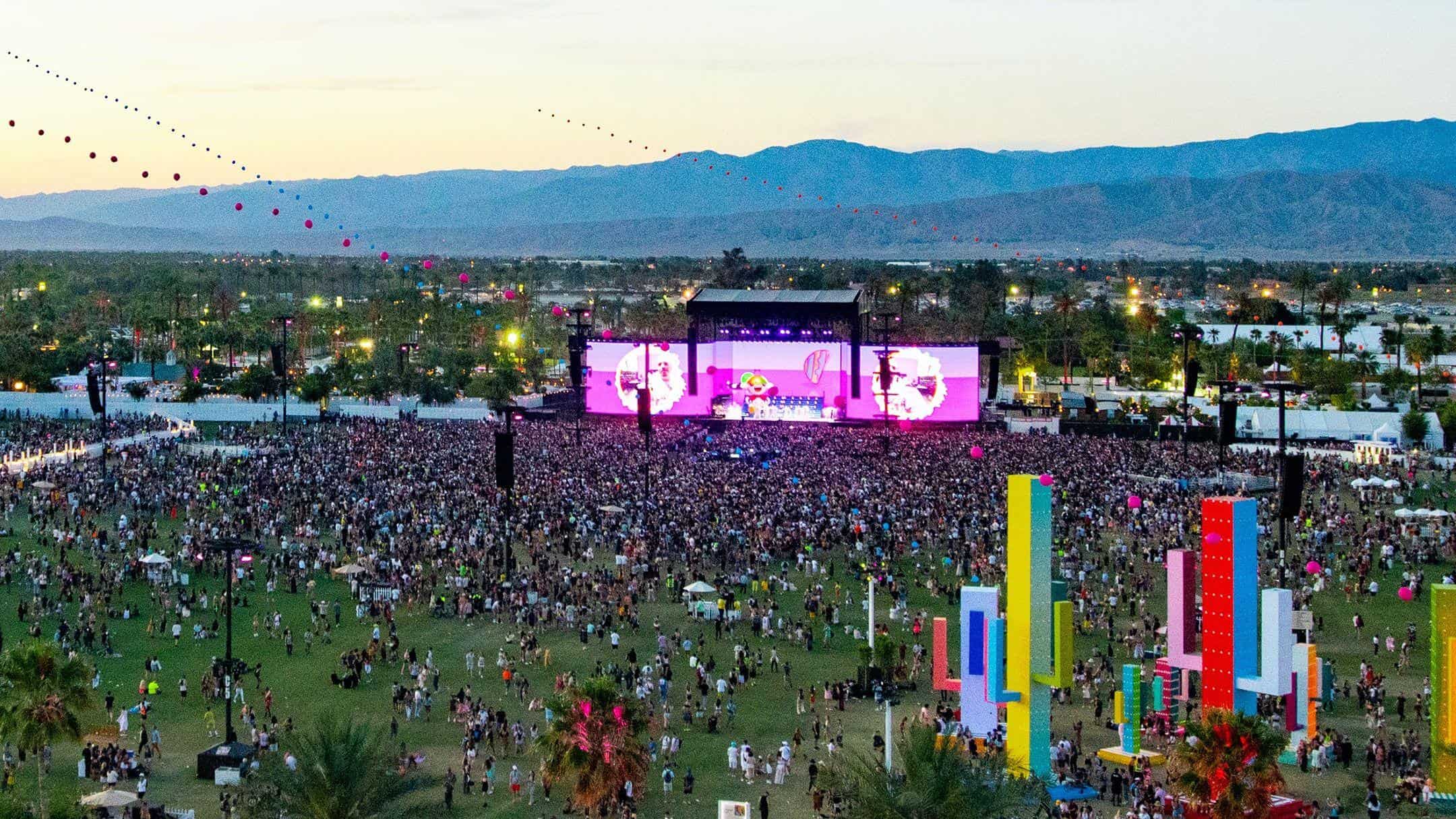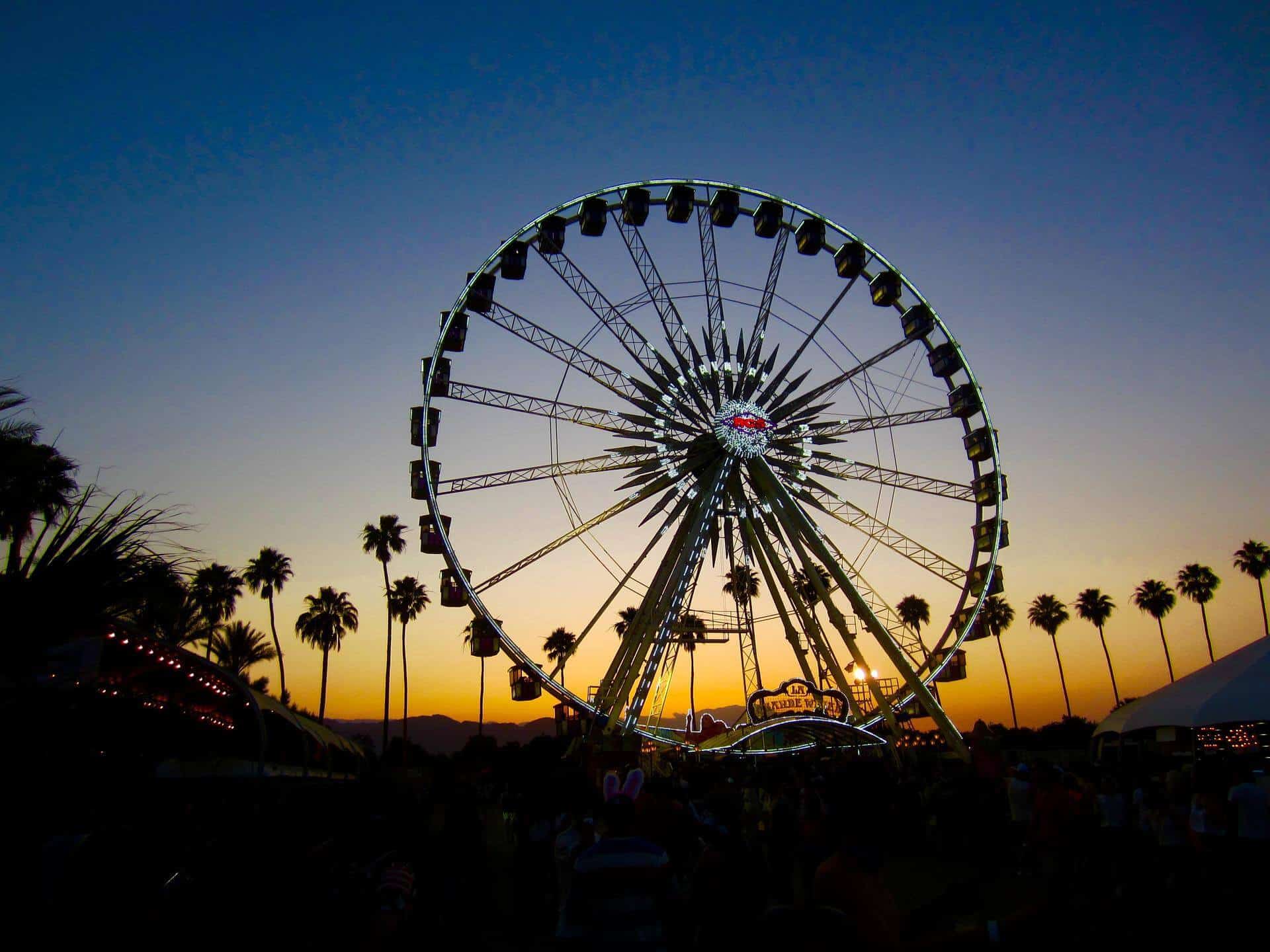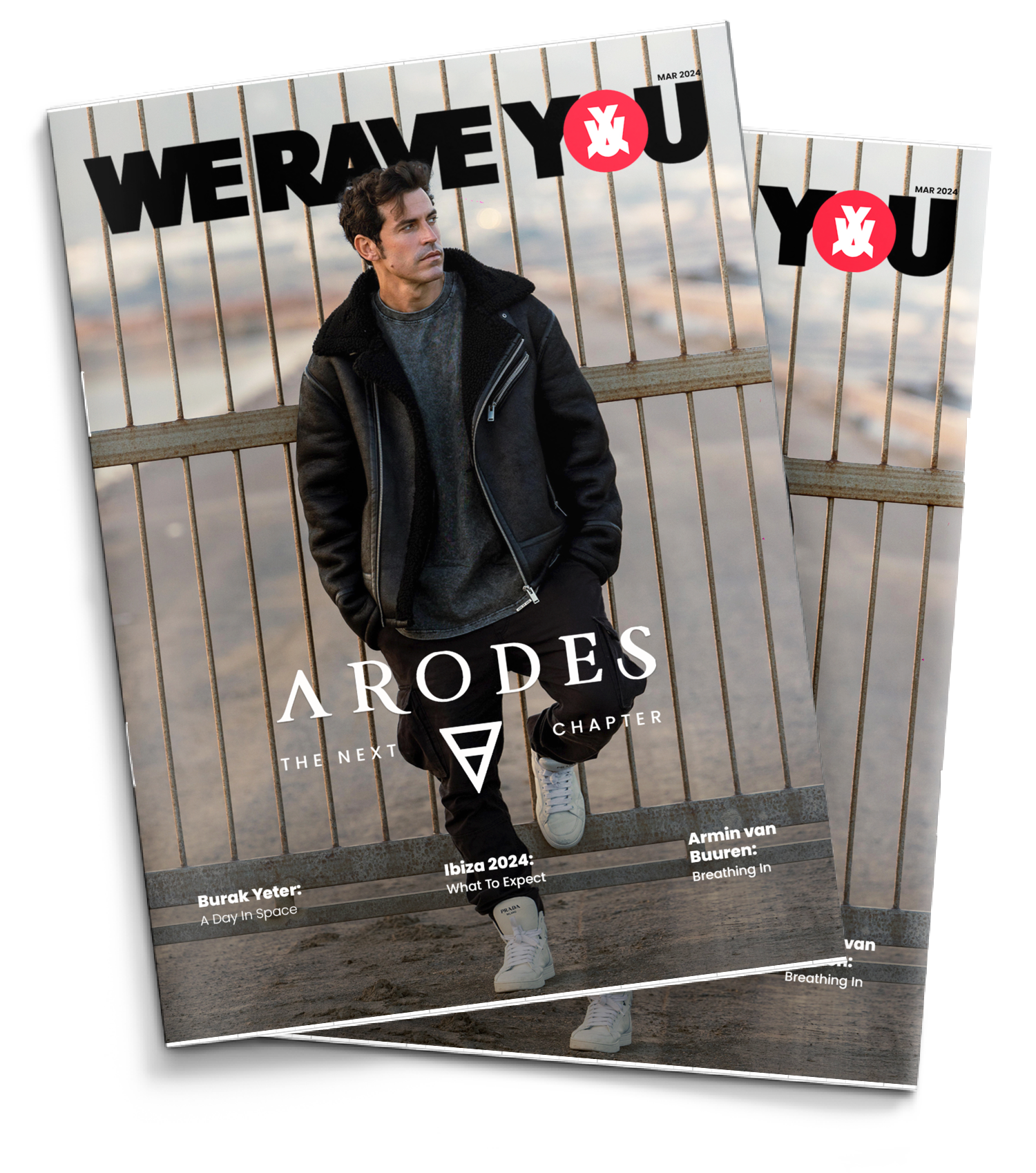

The dramatic evolution of Coachella: from Indie to Mainstream
Coachella has come a long way from its Indie/Rock roots, as it now champions many different world genres each year.
There’s no denying that Coachella has become one of the most influential music events in the world, famous for its glamourous party atmosphere. But how did it come to be the mainstream festival we know it as today? Ahead of its return this month, we thought we’d revisit the festivals indie roots,and see just how its genre representation has evolved since its inception back in 1999.
Like most festivals, Coachella has humble beginnings, as promoters Paul Tollett and Rick Van Santen channeled their love for punk and alternative into a small event in California. The two minds behind Goldenvoice really wanted to focus on the artistic side of such a creative industry, enlisting the likes of Rage Against The Machine, Beck and Morrissey for the first edition of the festival at the Empire Polo Club. Even with such prestigious artists in attendance, the first edition only sold a third of its allocated tickets, meaning Coachella had a rocky start to life as an event. This was to the extent that Coachella didn’t happen the following year, due to a lack of funding and an oversaturation of music events in California, with the likes of Pasquale Rotella already hosting big-name festivals there.
Coachella did return in 2001, and different slightly from its debut edition in the time of year it took place (to combat the California heat) and the fact it was only one day long, due to a lack of available talent. That didn’t stop some music critics dubbing it the festival of the year, laying down a precedent for what was to come.

Turning into a 2-day festival in 2002, Coachella really started to make a name for itself, inviting the likes of Björk, Oasis and Queens Of The Stone Age to the forefront. With illustrious headliners and strong support acts, the festival began to embed itself within indie/rock culture as one of the must-attend events of the times. In the years that followed soon after, artists such as Red Hot Chilli Peppers, Beastie Boys, Radiohead, The Cure, Coldplay and Nine Inch Nails had all made their Coachella debuts with dance music acts such as The Prodigy, Sasha & Digweed and Paul Oakenfold also present on the more underground stages. Some of the most significant electronic music performances didn’t come until 2006, with Depeche Mode amongst the headliners and Daft Punk offering up one of the most iconic sets in the festivals history.
Sticking to its guns with regards to its headliners prior to 2010, Coachella was making the effort to remain true to its roots with iconic performances from rock legends, the likes of Paul McCartney and Roger Waters. That said, change was certainly on the horizon. While organisers had always maintained a theme of mainly indie/rock headliners, the event had been drawing in rising artists in other genres for many years on its smaller stages, promoting talent such as Diplo, M.I.A and The Killers in the process. Beginning to buck popular music trends, it wasn’t long before the headliner formula began to change, as the 2010 edition saw rapper Jay-Z top of the billing, with Kanye West championed the following year.
Becoming a two-weekend event in 2012, Goldenvoice continued to strive in making Coachella one of the world’s premium festivals. In doing so, they booked two more of the rap scene’s most iconic artists in Snoop Dogg and Dr. Dre to headline both weekends. Loyal fans in the following years were, however, also treated to performances from Blur, The Stone Roses, Outkast and Muse as Coachella was eventually named the Top Festival in the Billboard Touring Awards in 2015.

Headline DJs had not been a familiar sight in the Coachella Valley until 2016, when Calvin Harris sat atop that years roster, amongst huge names such as a reunited Gun’s N’ Roses and LCD Soundsystem. The mainstream really started to take hold in 2017 however, with Lady Gaga and Kendrick Lamar amongst the mainstage highlights. Since then, mainstream names have dominated the lineup as the festivals rock roots have somewhat slowly faded away, with opportunities opening up for prominent pop talents such as the Weeknd, Childish Gambino, Ariana Grande, Travis Scott and more in recent years.
Last year, the festival made an emphatic return following the pandemic, with the Swedish House Mafia, Billie Eilish and Harry Styles leading the line. This year, Coachella brandishes a more diverse lineup than ever, testament to the organisers ability to grow with the changing times. In 2023, Calvin Harris returns to the desert, with reggaetón artist Bad Bunny, K-Pop group BLACKPINK and rapper Frank Ocean following suit; how’s that for genre evolution!
Image Credit: Newsroom PR


- Arodes cover Interview
- Armin van Buuren: Breathing In [Exclusive Interview]
- Ibiza 2024: What To Expect
- Burak Yeter: A Day In Space [Exclusive]
